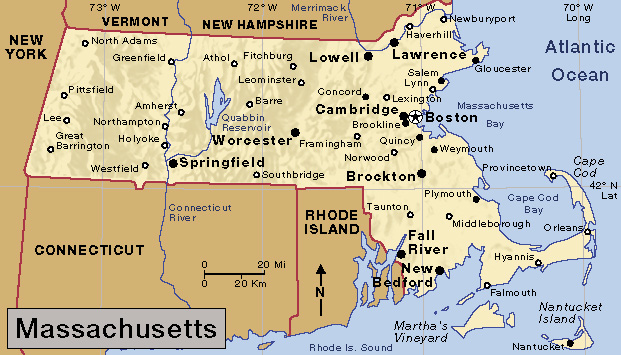Concord, Massachusetts (pop. 18,491), is noted for its historic and literary attractions. The town lies 19 miles (31 kilometers) northwest of Boston. The Concord grape originated in Concord. Welch Foods Incorporated, a maker of fruit products, has its headquarters there.

A group of English Protestants called Puritans founded Concord in 1635. Concord became a center of revolutionary activity and a storage area for military supplies. Minutemen, volunteers from the surrounding countryside, rallied to oppose British forces searching for these supplies. The patriots exchanged shots with British troops in a brief battle at Concord’s North Bridge on April 19, 1775. The fight, which the poet Ralph Waldo Emerson called “the shot heard round the world,” was one of the opening battles of the American Revolution. Today, a replica of the bridge and a statue called The Minute Man by Daniel Chester French mark the battleground. See Lexington and Concord, Battles of . The site is part of Minute Man National Historical Park.
Concord was a center of American writing in the 1800’s. Emerson, Louisa May Alcott, Nathaniel Hawthorne, and Henry Thoreau lived there. People may visit the Emerson House; Orchard House, where Alcott wrote most of Little Women; the Old Manse of Hawthorne; and the Wayside, where he lived. The Concord Museum displays period rooms of the 1600’s to the 1800’s. Nearby is Thoreau’s Walden Pond. Today, tourism, trade, and health care services provide many jobs in the town. Concord is governed by an open town meeting, a board of selectmen, and a town manager.
